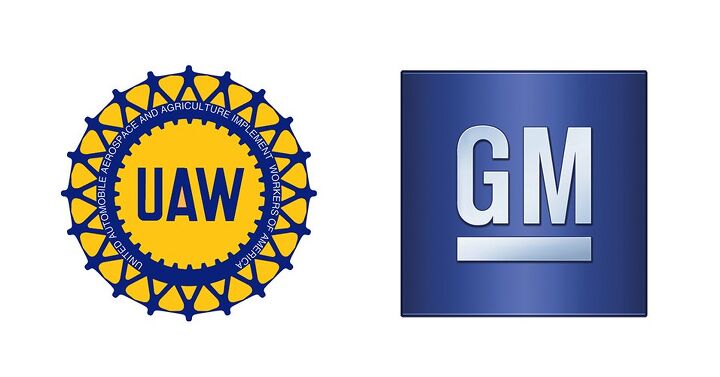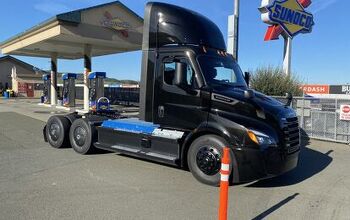Majority of GM Employees Approve Contract, Still Does Not Pass

The United Auto Workers union announced late Friday that, while the majority of its 52,000 membership voted “Yes” to the tentative agreement, skilled trades workers voted 59.5 percent against the deal.
“The UAW has not deemed the tentative agreement ratified,” said the union.
It was previously reported the tentative agreement may not be ratified due to skilled trades workers voting down the agreement.
UAW production members voted 58.3-percent in favor of the proposed contract and 55.43-percent of total voting members agreed to the proposal, but the contract can not be ratified until it is passed by skilled trades members.
The UAW laid out the next steps in a statement on Friday.
“The UAW will hold meetings with its UAW-GM Skilled Trades membership at each worksite over the next several days in order to determine what reason(s) they had for rejection of the tentative agreement. Once that inquiry has concluded, the UAW’s International Executive Board shall meet to determine what appropriate steps shall be taken. The results of this process cannot change aspects of the agreement which are common to all members,” the union stated.
Not a single salaried worker voted against the Salaried Master Agreement. It has been ratified separate of the National Agreement that covers production and skilled trades workers.
On October 28, the UAW touted a “clear path to traditional wages for all in-progression employees” at General Motors.
“UAW-GM members will have significant wage increases, signing bonuses and improved health care under the new Tentative Agreement with General Motors that was overwhelmingly approved by the local union leaders on the UAW National GM Council,” the union said then.
The UAW outlined the improvements to the contract on its website:
- Traditional Employees: All traditional members will receive a 3 percent wage increase for the first year, 4 percent lump sum in the second year, 3 percent wage increase in the third year, and 4 percent lump sum for the last year. Traditional employees will receive an $8,000 signing bonus upon ratification.
- In-Progression Employees: The bargaining committee secured a clear path for in-progression members to achieve traditional wages. All in-progression employees are moved to traditional health care plan. In-progression employees will receive an $8,000 signing bonus upon ratification.
- Temporary Employees: The Tentative Agreement includes a lump sum payment of $2,000 for active, temporary employees who have worked at least 90 days prior to the effective date. Temporary employees will receive wage increases and a health care plan.
- SAP of $60,000: The agreement includes a $60,000 bonus for up to 4,000 eligible production employees who retire between Feb. 1 and May 1, 2016, as determined under the normal and early retirement provisions of the national agreement.
- Appendix “A” Rights: Appendix “A” rights will include in-progression employees with 2 years of seniority as well as eligible in-progression and traditional employees at GMCH, Davidson Rd. and Westchester

More by Mark Stevenson
Latest Car Reviews
Read moreLatest Product Reviews
Read moreRecent Comments
- CoastieLenn I would do dirrrrrrty things for a pristine 95-96 Thunderbird SC.
- Whynotaztec Like any other lease offer it makes sense to compare it to a purchase and see where you end up. The math isn’t all that hard and sometimes a lease can make sense, sometimes it can’t. the tough part with EVs now is where is the residual or trade in value going to be in 3 years?
- Rick T. "If your driving conditions include near-freezing temps for a few months of the year, seek out a set of all-seasons. But if sunshine is frequent and the spectre of 60F weather strikes fear into the hearts of your neighbourhood, all-seasons could be a great choice." So all-seasons it is, apparently!
- 1995 SC Should anyone here get a wild hair and buy this I have the 500 dollar tool you need to bleed the rear brakes if you have to crack open the ABS. Given the state you will. I love these cars (obviously) but trust me, as an owner you will be miles ahead to shell out for one that was maintained. But properly sorted these things will devour highway miles and that 4.6 will run forever and should be way less of a diva than my blown 3.8 equipped one. (and forget the NA 3.8...140HP was no match for this car).As an aside, if you drive this you will instantly realize how ergonomically bad modern cars are.These wheels look like the 17's you could get on a Fox Body Cobra R. I've always had it in the back of my mind to get a set in the right bolt pattern so I could upgrade the brakes but I just don't want to mess up the ride. If that was too much to read, from someone intamately familiar with MN-12's, skip this one. The ground effects alone make it worth a pass. They are not esecially easy to work on either.
- Macca This one definitely brings back memories - my dad was a Ford-guy through the '80s and into the '90s, and my family had two MN12 vehicles, a '93 Thunderbird LX (maroon over gray) purchased for my mom around 1995 and an '89 Cougar LS (white over red velour, digital dash) for my brother's second car acquired a year or so later. The Essex V6's 140 hp was wholly inadequate for the ~3,600 lb car, but the look of the T-Bird seemed fairly exotic at the time in a small Midwest town. This was of course pre-modern internet days and we had no idea of the Essex head gasket woes held in store for both cars.The first to grenade was my bro's Cougar, circa 1997. My dad found a crate 3.8L and a local mechanic replaced it - though the new engine never felt quite right (rough idle). I remember expecting something miraculous from the new engine and then realizing that it was substandard even when new. Shortly thereafter my dad replaced the Thunderbird for my mom and took the Cougar for a new highway commute, giving my brother the Thunderbird. Not long after, the T-Bird's 3.8L V6 also suffered from head gasket failure which spelled its demise again under my brother's ownership. The stately Cougar was sold to a family member and it suffered the same head gasket fate with about 60,000 miles on the new engine.Combine this with multiple first-gen Taurus transmission issues and a lemon '86 Aerostar and my dad's brand loyalty came to an end in the late '90s with his purchase of a fourth-gen Maxima. I saw a mid-90s Thunderbird the other day for the first time in ages and it's still a fairly handsome design. Shame the mechanicals were such a letdown.


































Comments
Join the conversation
Matters not to me. Never again, GM.
So are these "skilled trade members" the majority of the union or are they the elite 1%?